Time Management: Strategies for Productivity, Planning & Goal Setting
VerifiedAdded on 2023/06/15
|9
|562
|478
Presentation
AI Summary
This presentation provides a comprehensive overview of time management, emphasizing its importance in achieving work-life balance and attaining personal and professional goals. It defines time management as the effective allocation of time to tasks, highlighting its necessity for controlling tasks, improving performance, and avoiding resource wastage. The presentation outlines key strategies for effective time use, including planning, setting deadlines, prioritizing activities, delegating responsibilities, and setting SMART goals. It also introduces the '3 P’s' of effective time management: Planning, Priorities, and Performing. Furthermore, the presentation addresses and debunks common myths about time management, encouraging individuals to adopt effective techniques for enhanced productivity. The document concludes that time management plays a vital role in developing effective work-life balance and references research articles.
1 out of 9

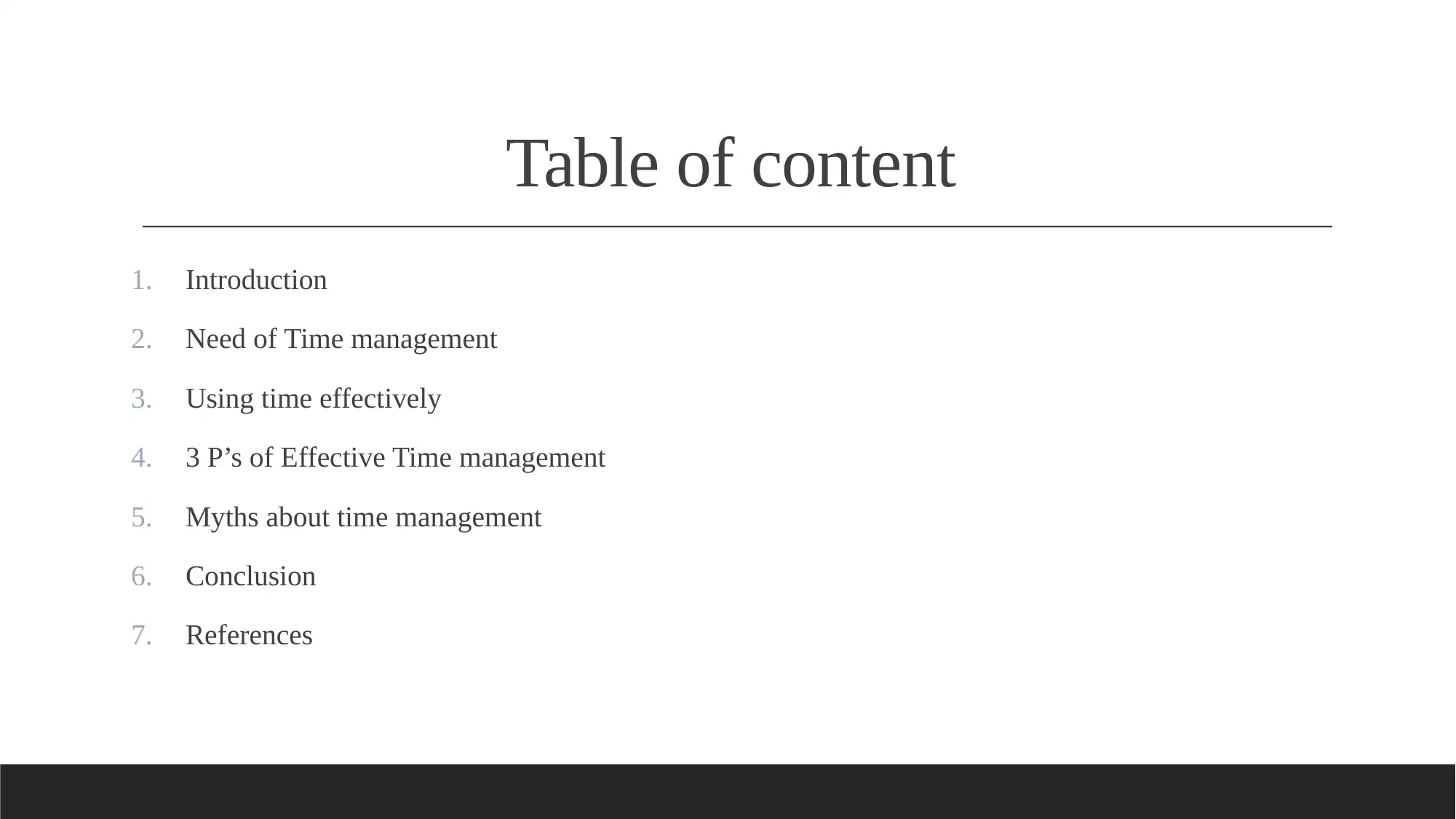
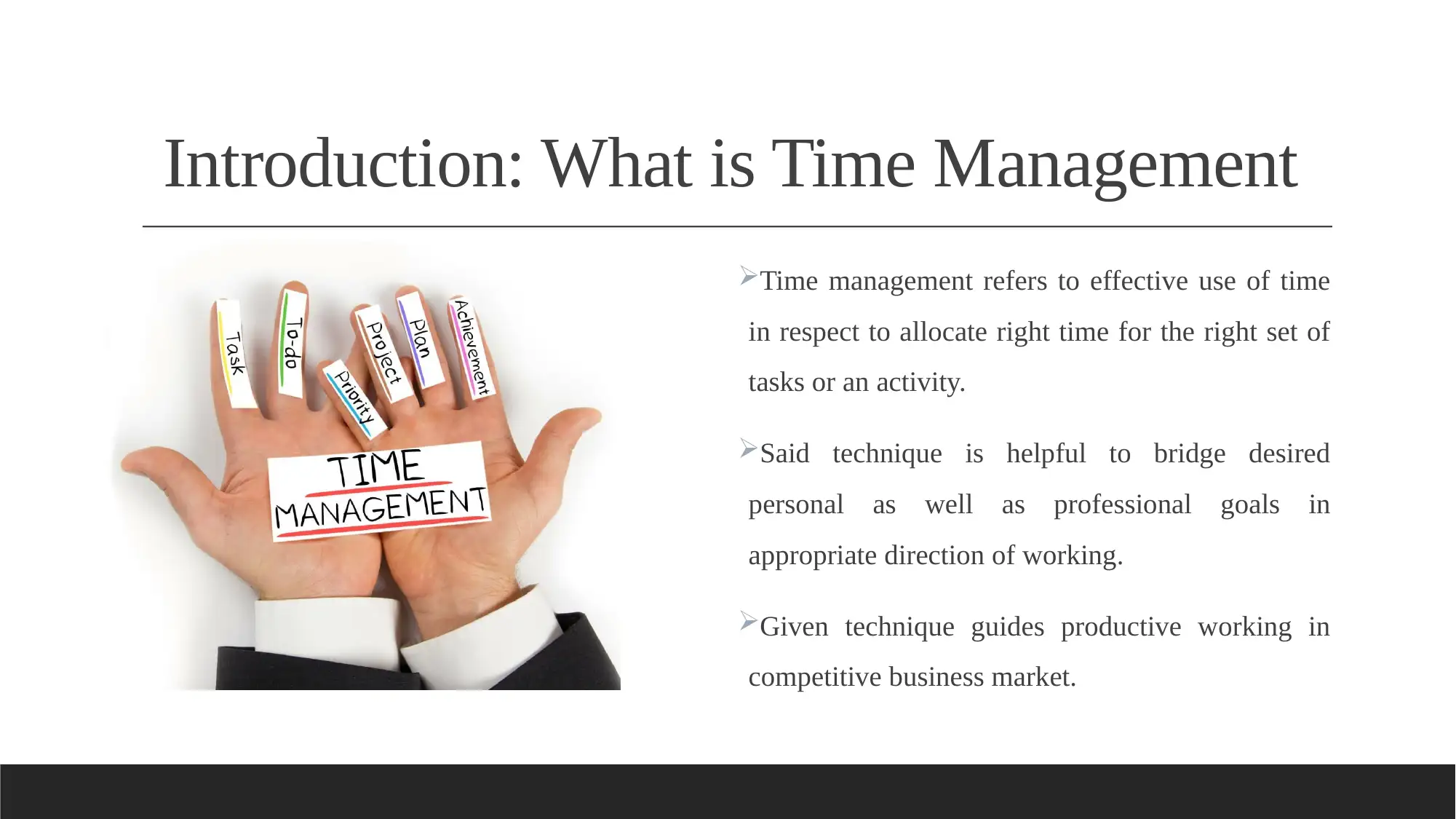

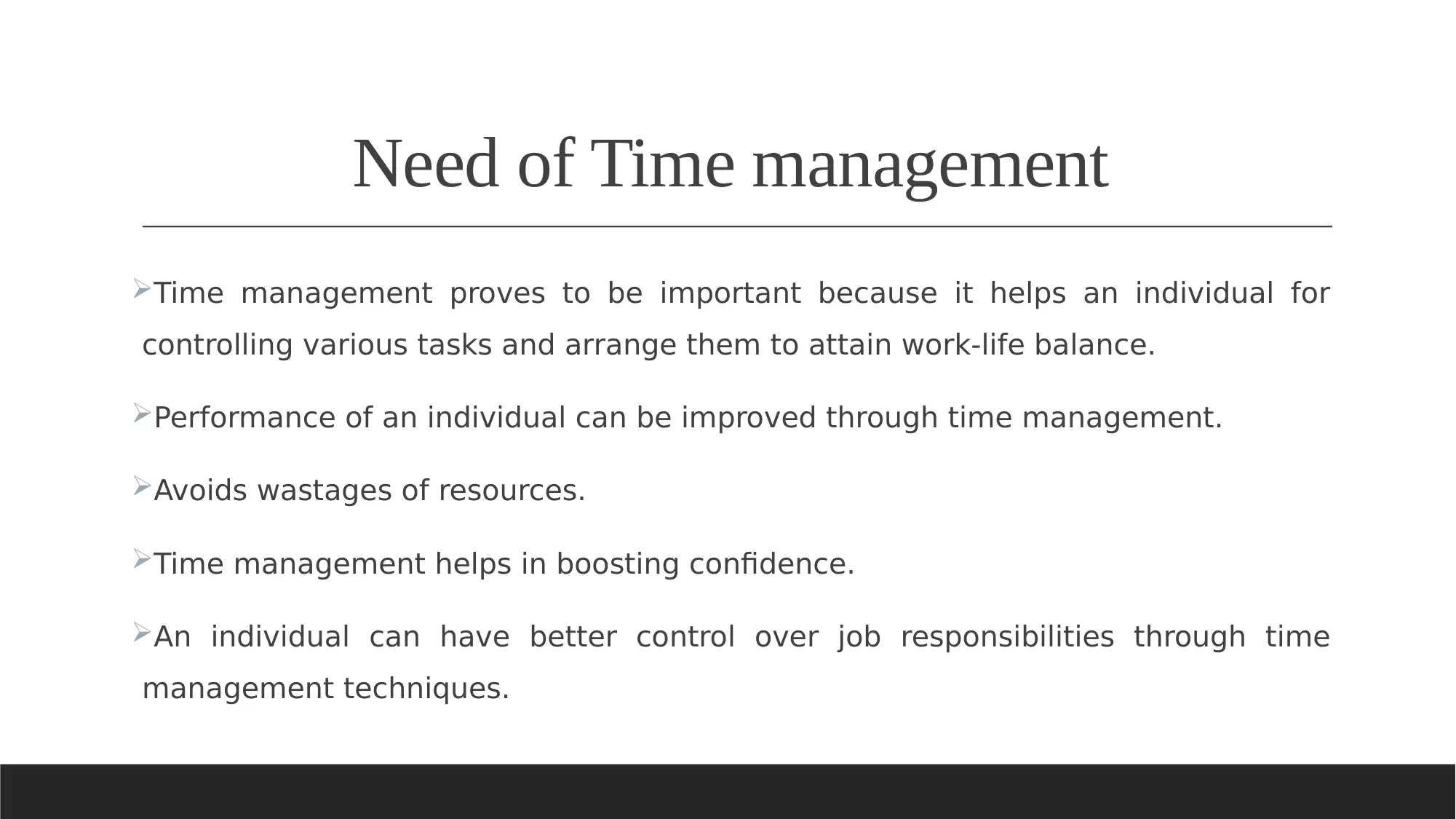
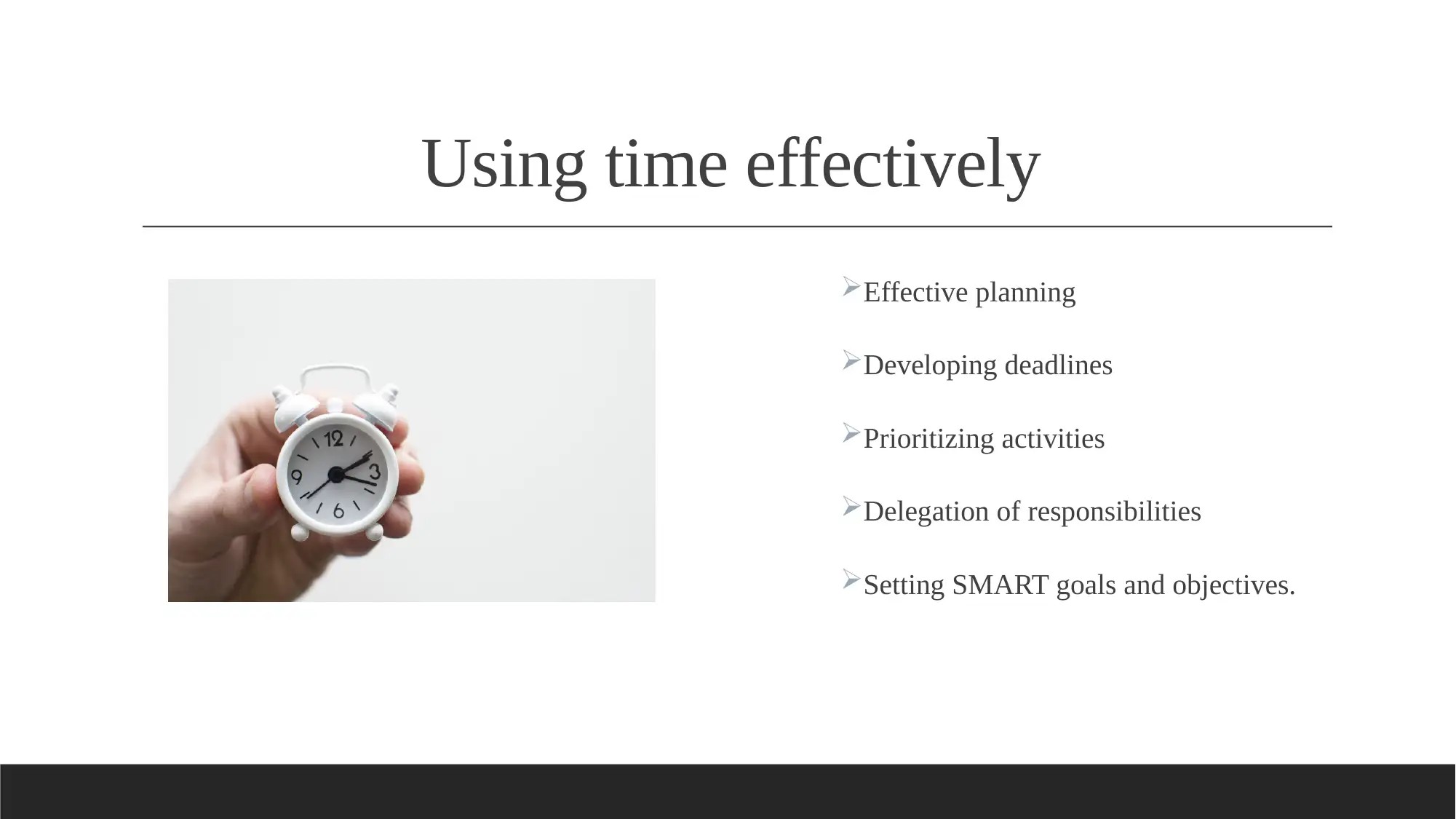
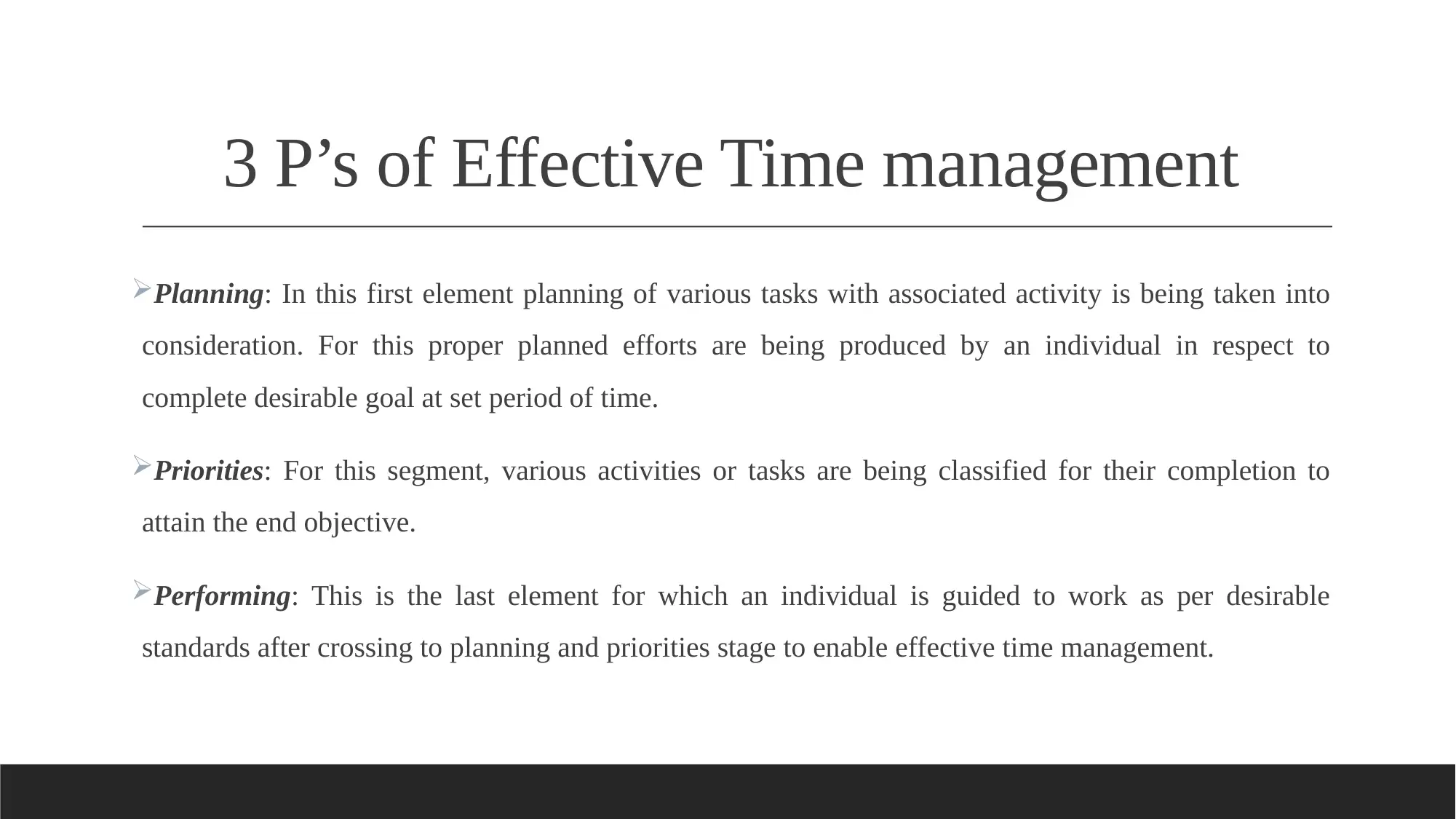
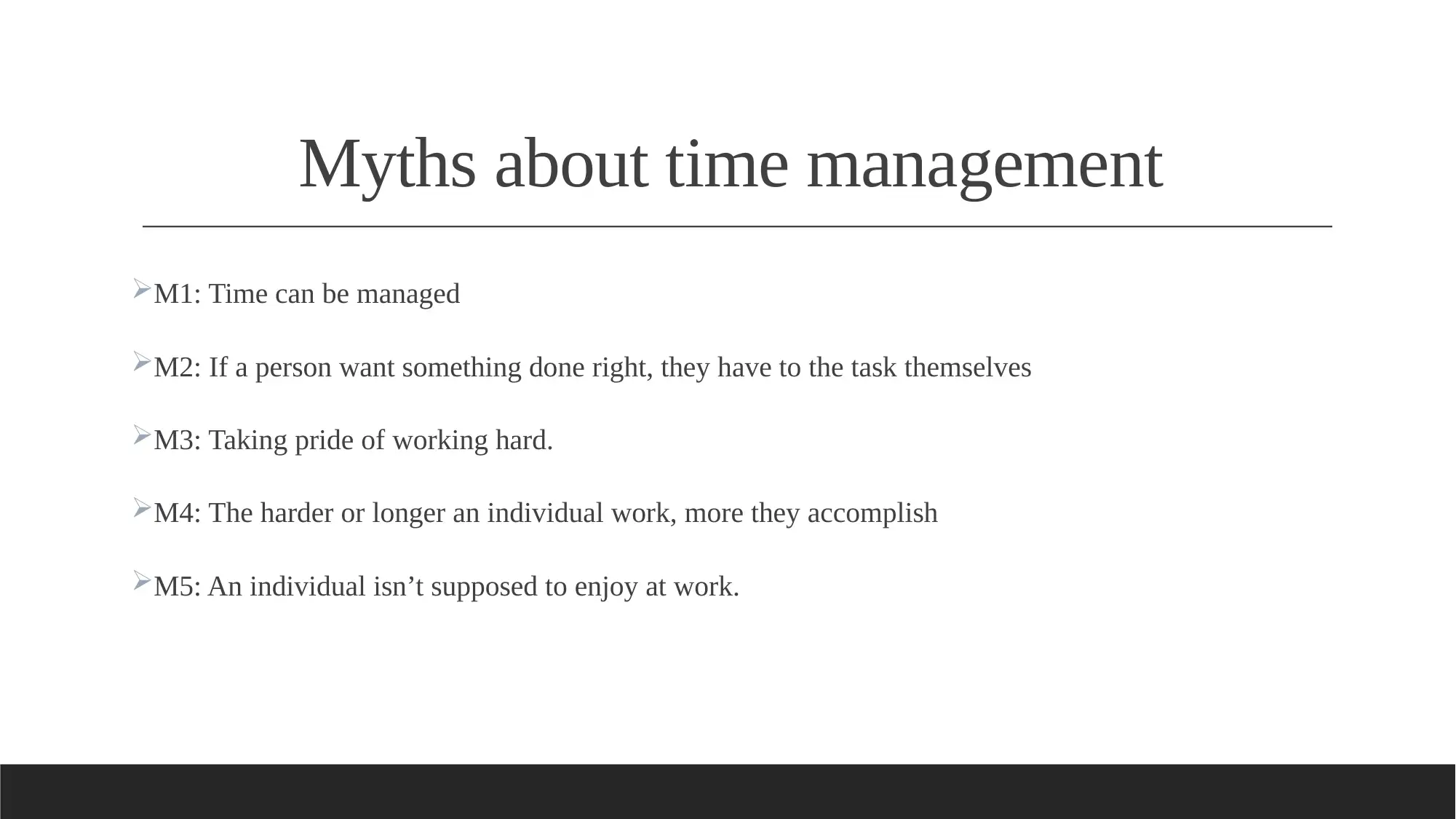
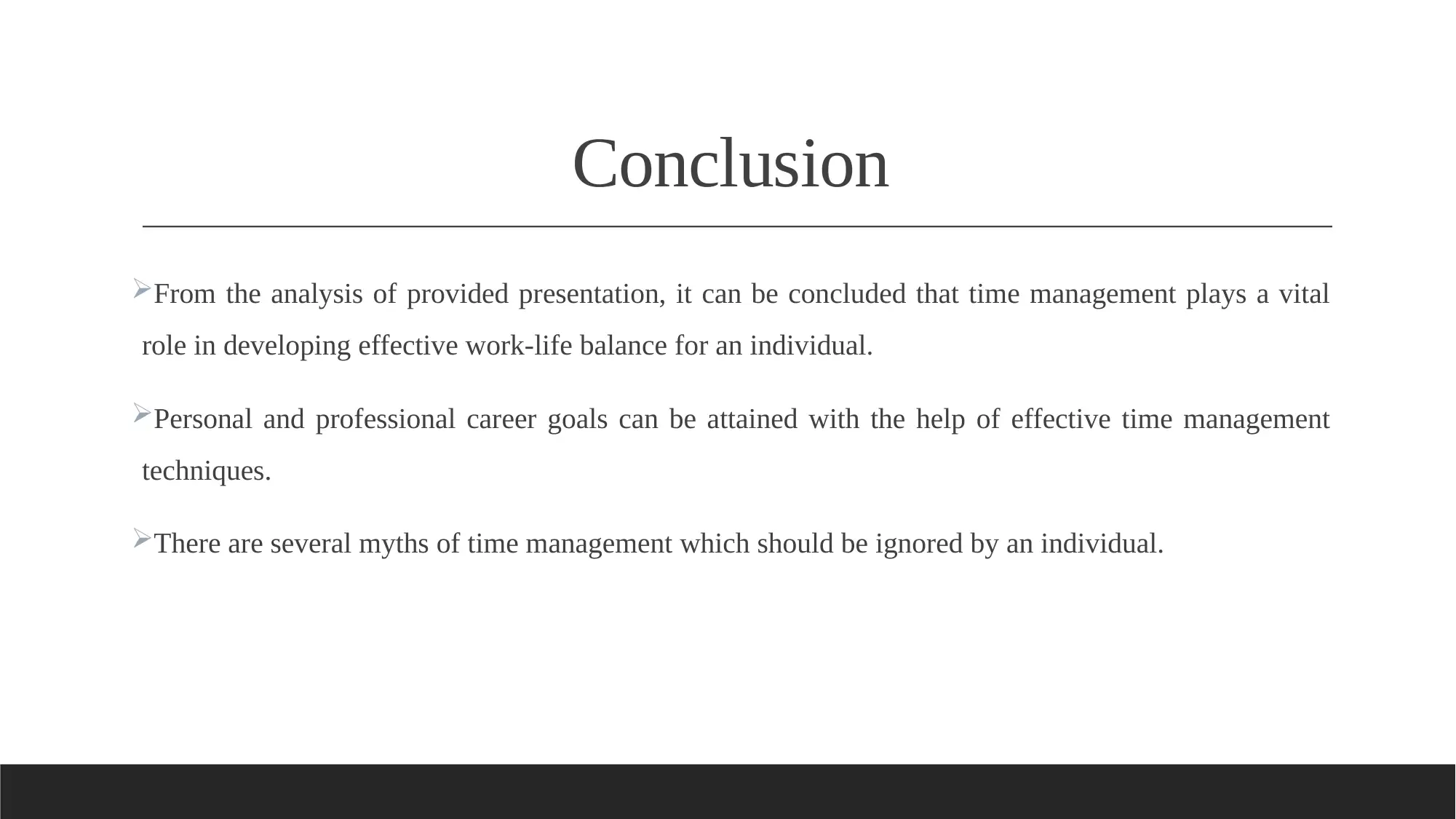
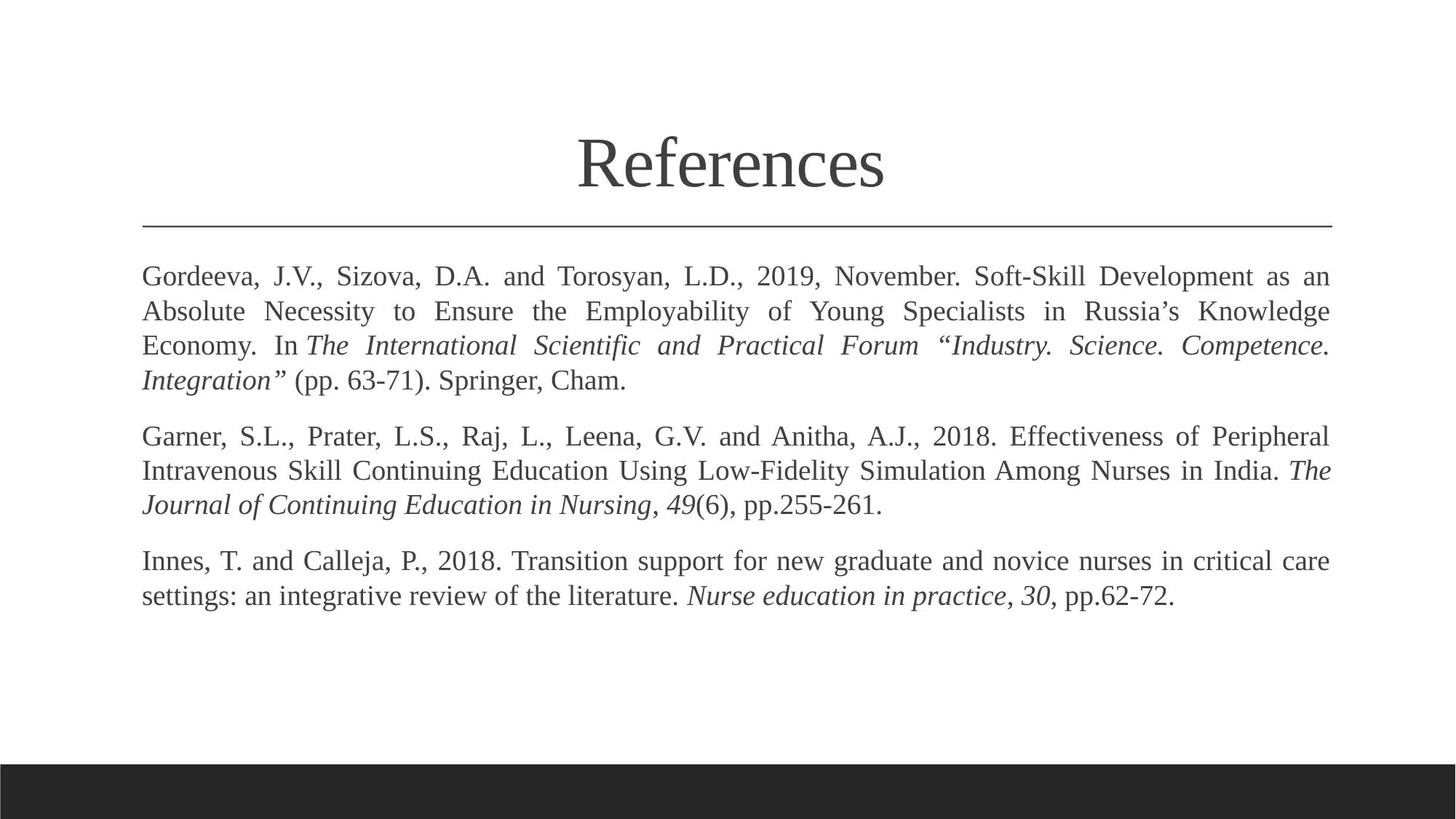





![[object Object]](/_next/static/media/star-bottom.7253800d.svg)